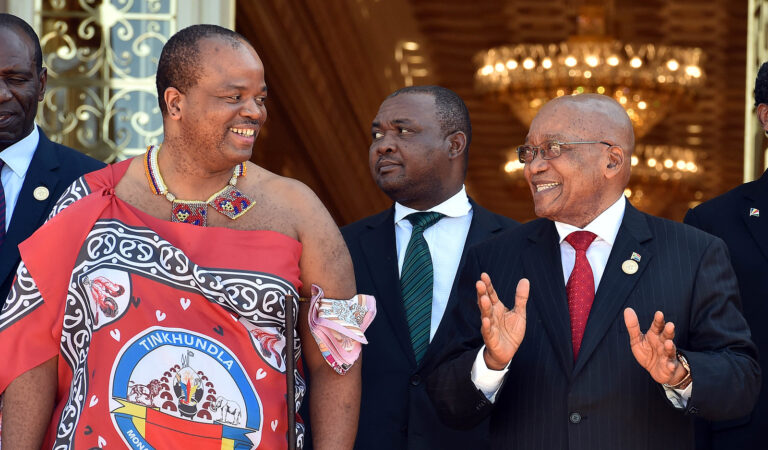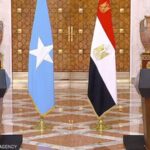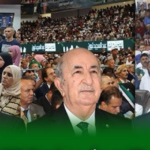Eswatini’s King Mswati III’s plans to wed Nomcebo Zuma, the daughter of former South African President Jacob Zuma, as his 16th wife. This will strengthen the ties between the two leaders.
A royal delegation from Eswatini visited Jacob Zuma’s homestead at Nkandla in July in accordance with tradition, marking the start of Mswati’s marriage proposal to Zuma.
This union can be seen as a strategic move, cementing economic and political interests.
President Zuma’s role and capacity to be a major ambassador for Swaziland or the Swazi royal family is a noncontestable issue and has become even far more important in view with the development or the emergence of MK [uMkhonto weSizwe] as a political party with President Zuma as its absolute president.
However, Zuma’s diminished role in South African politics renders him unable to influence Swazi politics.
But the marriage strengthening bilateral relations between the king of Swaziland and the former president. The former president of South Africa and king are actually business partners and so, we expect that part of their relationship will actually blossom.
Zuma is expected to go on trial on multiple corruption and racketeering charges next April. He has pleaded not guilty.
Meanwhile, Mswati has been criticized for his controversial polygamy and lavish lifestyle.
This high-profile wedding, with its steep dowry of 100 cattle and R2 million (2 million rands(, or USD $113,300 and all the other hidden costs associated with a wedding of this nature, puts a significant strain on Swaziland’s economy. Within royal circles, this union has also been met with internal opposition among the royal wives. … This marriage will cause an uproar.
Whether seen as a strategic union of two powerful families or a personal decision to extend influence and financial gain, the king’s marriage to Nomcebo Zuma will have a lasting impact on the two nations’ ties, for better or worse.
The engagement between King Mswati III of Eswatini and Princess Ntandoyesizwe, carries several potential implications:
1. Strengthening of Political Ties between Eswatini and South Africa:
- Diplomatic Relations: The marriage could symbolize a deepening of ties between Eswatini and South Africa, especially given the familial connection to a former South African leader. This could foster stronger diplomatic relations and closer collaboration between the two nations, which already share cultural and historical ties.
- Political Influence: By aligning with a family that has held significant political power in South Africa, King Mswati might gain a more influential position or a channel to influence political matters in the region.
2. Impact on Domestic Politics in Eswatini:
- Public Perception: Eswatini has experienced political unrest, with calls for democratic reforms and more participation from the public in governance. King Mswati’s engagement to someone from a high-profile political family might be seen as a move to bolster his position, but it could also attract criticism if seen as prioritizing alliances over addressing domestic issues.
- Symbolic Unity: For supporters of the monarchy, this engagement might be seen as a strengthening of traditional and royal values, reinforcing the king’s stature as a leader who can unite influential families.
3. Economic Implications:
- Business and Economic Ventures: The Zuma family has various business interests, and this alliance could pave the way for economic collaborations or investments between businesses in South Africa and Eswatini. It could potentially attract South African investors who are aligned with or influenced by the Zuma family.
- Tourism and Cultural Exchange: The engagement could lead to an increase in tourism and cultural exchanges between the two countries, capitalizing on the royal connection and shared cultural heritage.
4. Regional Power Dynamics:
- Influence in Southern Africa: The marriage may influence regional power dynamics, especially within the Southern African Development Community (SADC). The Zuma family’s involvement in South African politics, coupled with King Mswati’s status as Africa’s last absolute monarch, could create a bloc of influence, affecting negotiations and alliances within the SADC region.
- Potential for Mediation Roles: Given their statuses, both families might be seen as potential mediators or power brokers in regional conflicts or disputes, which could impact political negotiations in southern Africa.
5. Public Opinion and Reactions:
- Criticism and Support: The engagement has already sparked diverse reactions on social media, with some viewing it as a union of power and wealth, while others criticize it as part of ongoing political maneuvering. The public’s reaction will play a crucial role in shaping the narrative around this engagement.
- Gender and Social Justice Issues: In both Eswatini and South Africa, issues related to gender equality and social justice are prominent. The engagement could bring these topics to the forefront, especially considering King Mswati’s history of multiple marriages and the ongoing debates about traditional versus modern values.
6. Potential Impact on Jacob Zuma’s Legacy:
- Public Perception: The engagement could affect how Jacob Zuma is perceived, especially if it is seen as extending his influence beyond his political career. It may also be viewed as a way for him to maintain relevance in South African and regional politics.
- Legal and Corruption Cases: Zuma faces ongoing legal battles in South Africa over corruption charges. The royal connection could be seen as a strategic move to gain favor or leverage, although it is unlikely to directly impact legal proceedings.
7. Cultural and Traditional Significance:
- Traditional Alliances: Marriages have historically been used to cement alliances and strengthen ties between powerful families. This engagement could be seen as a continuation of that tradition, reinforcing the cultural practices of both the Zulu and Swazi peoples.
- Royal Protocols and Customs: The engagement may highlight and reinforce traditional customs and protocols within the royal families, setting an example for other traditional leaders in the region.
In conclusion, while the engagement is primarily a personal and familial matter, it has broader political, economic, and social implications for Eswatini, South Africa, and the southern African region. The actual impact will depend on how these relationships and alliances are managed and perceived by the public and political leaders.

More on this story: Monarchy in Eswatini about to fall, China-orchestrated


More on this story: Eswatini’s repression is intensifying ahead of the upcoming elections




